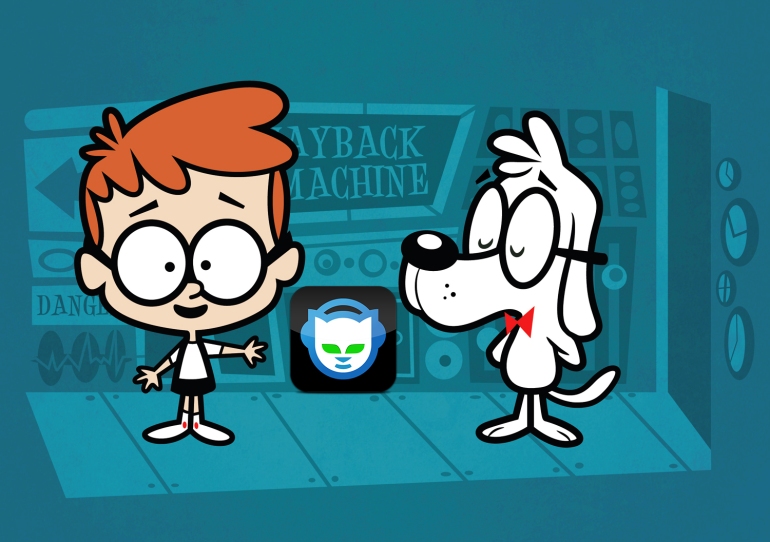Already known as Napster overseas, Seattle-based streaming service Rhapsody announced its plan to rebrand as Napster in all markets. The expansion of the moniker suggests a company that has nothing left to lose and may do little to boost revenue, says former Rhapsody exec Jon Maples
_________________________________________
Guest Post by Jon Maples, digital music consultant at JonMaples.com
Oh Rhapsody! Or should I say, oh Napster! The pioneering Seattle-based streaming music company yesterday finally announced a long-planned rebranding of its service to Napster. While it certainly got some attention, it wasn’t exactly the kind of attention one craves.

[Disclosure: I argued about which brand to support while serving as VP of Product for Rhapsody International until 2013]
Rhapsody acquired the Napster brand when it bought the assets of the company from Best Buy in 2011. Instead of rebranding the service Rhapsody in Germany and the UK, the company has operated two brands since—Rhapsody in the States and Napster internationally.
So it would make sense that the company would need to unite under a single name. We can all agree that Rhapsody hasn’t been a powerful brand. It’s better known as your Dad’s first streaming service, back from the days when you had to listen to on the computer or on a weirdo MP3 player (Philips Go Gear or SanDisk Sansa, anyone?) but definitely, absolutely NOT the iPod. When we did surveys on the brand back in the day, the overwhelming consensus from music fans was, ‘meh.’
While the company Rhapsody International has had some success growing recently, it’s all about Napster. All of the company’s expansion in past few years in Europe and Latin America has been under the Napster brand. Meanwhile, Rhapsody has failed to find traction.
As I have written about before, Rhapsody’s strategy is to focus on cell carriers to market and sign up users, as it does with e-Plus in Germany, Telefonica in Latin America, and Metro PCS in the United States.
Rhapsody has a loyal core of high margin subscribers who have been with the service for years. But those numbers dwindle each year as new products come into the marketplace that are aimed directly at the music fan. I’m sure the execs in Seattle had a number in mind when the company could roll out a new brand without risking a mass loss of revenue. So, now they have nothing to lose.
Napster is a powerful brand, bringing back a strong sense of nostalgia for many music fans. So I can understand the temptation to want to utilize that asset. However in the United States, Napster’s negatives are huge. Most consumers still associate Napster with stealing music. And it’s just not potential consumers. Sources tell me that at least one major label is not very happy with the return of the brand.
Look, the world has changed. Does it make sense to continue to look back to an era when people (again, your dad, if you’re a young Millennial) stole mass amounts of music, or should the company look ahead and come up with a new name that is associated with something else than the early days of digital music? I mean, if the problem is that Rhapsody is an old tired brand, why do you go back further in the past and pick a name that has more baggage than Samsonite? And no, ‘just because we had this brand laying around’ is not a good answer.
My personal favorite would have been the original proposed name for Rhapsody, Aladdin. Equally difficult to spell, but somehow apt. You just rub the magic lamp and watch money disappear.